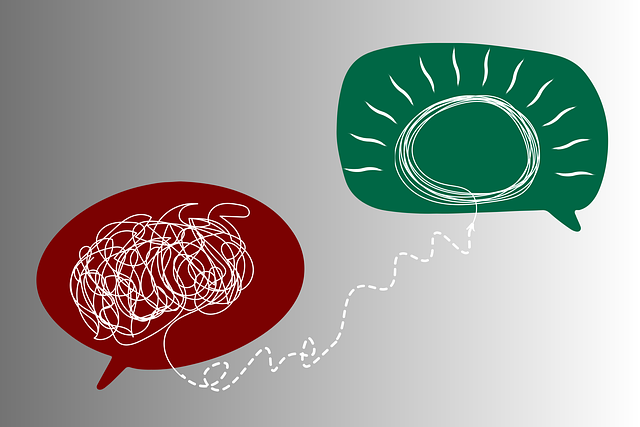Resilience is crucial for adolescent teens, especially those from Mandarin Chinese-speaking backgrounds, who face cultural isolation and stress. The RFM (Risk, Resilience, Maladaptation) framework offers a culturally competent therapy model tailored to these needs through crisis intervention, mindfulness practices, and peer support networks. By integrating traditional Chinese philosophy and folklore into resilience-building exercises, therapists can foster emotional well-being and adaptability in this demographic. Measuring success involves assessing both short-term gains (like improved emotional regulation) and long-term impacts (like reduced mental illness symptoms and stigma), ultimately aiming to enhance academic performance and quality of life within their communities.
In today’s diverse society, understanding cultural nuances in mental health support is vital. This article explores how RFM (Resilience, Flexibility, and Mastery) exercises can build resilience among Mandarin-speaking adolescent teens. We delve into the significance of RFM in addressing unique challenges these youth face, offering a structured approach to therapy. By identifying at-risk individuals and designing culturally sensitive exercises, professionals can effectively guide teens towards enhanced well-being. This comprehensive guide provides a step-by-step framework for implementing RFM strategies tailored to Mandarin teen populations.
- Understanding RFM and its Relevance in Teen Resilience Building
- Identifying Mandarinspeaking Adolescent Teens in Need of Support
- Designing Effective Resilience Exercises for Cultural Sensitivity
- Implementing RFM Strategies: Step-by-Step Guide for Professionals
- Measuring Success and Long-Term Impact on Mandarin Teen Wellbeing
Understanding RFM and its Relevance in Teen Resilience Building

Resilience is a vital asset for adolescent teens, especially those from diverse cultural backgrounds like Mandarin Chinese-speaking communities. This is where RFM (Risk, Resilience, and Maladaptation) comes into play as a powerful framework in therapy for adolescent teens. By identifying and understanding risks and maladaptations, while fostering resilience, professionals can empower young individuals to navigate challenges more effectively.
In the context of mental wellness coaching programs development, healthcare provider cultural competency training is essential. RFM allows therapists to create tailored interventions that address unique needs within these communities. Crisis intervention guidance, often integrated into RFM strategies, ensures teens receive prompt and culturally sensitive support during times of distress. This holistic approach not only enhances their mental wellness but also prepares them for future adversity, making it a valuable tool in promoting overall well-being.
Identifying Mandarinspeaking Adolescent Teens in Need of Support

Mandarin Chinese speaking adolescent teens often face unique challenges that can impact their mental health and overall well-being. Identifying these individuals early is crucial in providing them with the necessary support. Many teenage students from Mandarin-speaking backgrounds may struggle with feelings of isolation or cultural disconnection, especially when transitioning to new educational environments. This sense of detachment can lead to increased anxiety, depression, or even burnout, particularly among those already predisposed to mental health issues.
Therapy for adolescent teens mandarin Chinese speaking is an effective approach to addressing these concerns. It offers a safe space for them to express their emotions and share experiences specific to their cultural background. Through therapy, these teenagers can develop essential coping skills and learn self-care practices tailored to their needs. Additionally, incorporating burnout prevention strategies for healthcare providers can be valuable, as it enables professionals to guide adolescents in managing stress and maintaining resilience while fostering a sense of belonging within the community.
Designing Effective Resilience Exercises for Cultural Sensitivity

In designing resilience-building exercises for adolescent teens who are Mandarin Chinese speakers, cultural sensitivity is paramount. It’s crucial to understand that mental health practices must be adapted to resonate with the unique values and beliefs of this specific demographic. Incorporating elements from traditional Chinese philosophy and practices, such as mindfulness meditation and empathy-focused therapy, can create a safe and relatable space for teens to process their emotions and build resilience.
The implementation of these exercises should go beyond mere translation, aiming for true cultural adaptation. This involves not only translating materials into Mandarin but also ensuring that the content is culturally appropriate and accessible. For instance, incorporating stories or metaphors from Chinese folklore or literature can make therapy sessions more engaging and meaningful for teens who identify with these cultural references. Moreover, integrating Empathy Building Strategies tailored to Chinese cultural norms can foster a deeper sense of connection and understanding among participants, ultimately enhancing the effectiveness of resilience-building programs within this context.
Implementing RFM Strategies: Step-by-Step Guide for Professionals

Implementing RFM (Resilience, Flexibility, and Mindfulness) strategies is a powerful approach for professionals working with adolescent teens, especially those from Mandarin Chinese-speaking backgrounds who may face unique challenges due to cultural and linguistic barriers. Here’s a step-by-step guide to help navigate this process effectively:
1. Assess Individual Needs: Begin by evaluating each teen’s current state of mental wellness. Understand their specific struggles, whether it be anxiety, depression, or cultural shock. This assessment will guide the tailoring of RFM exercises to address personal and collective resilience building.
2. Introduce Mind Over Matter Principles: Teach adolescents the power of positive thinking and reframing negative thoughts. Encourage them to adopt a growth mindset, viewing challenges as opportunities for growth rather than insurmountable obstacles. This mental illness stigma reduction effort fosters self-efficacy from an early age.
3. Cultivate Flexibility Through Mindfulness Practices: Integrate mindfulness coaching programs into daily routines. Simple breathing exercises and body scans can enhance their ability to adapt and manage stress. By regularly engaging in these practices, teens learn to respond rather than react to triggers, promoting a sense of calm and control.
4. Build Resilience with Structured Exercises: Implement structured resilience-building activities tailored to their interests. For example, role-playing scenarios can help them navigate social situations with increased confidence. Outdoor adventures or creative arts programs offer safe spaces for teens to process emotions and build coping mechanisms while enjoying a change of pace.
5. Promote Peer Support and Cultural Connection: Foster a sense of community within the therapeutic setting by encouraging peer support networks. Facilitate group discussions where adolescents can share experiences, offering comfort and understanding. Additionally, incorporate cultural elements into mindfulness practices to resonate with Mandarin Chinese-speaking teens, ensuring they feel seen, heard, and valued.
Measuring Success and Long-Term Impact on Mandarin Teen Wellbeing

Measuring the success of RFM (Resilience and Wellbeing Programs) implemented for Mandarin-speaking adolescent teens involves a comprehensive assessment of both immediate outcomes and long-term impact on their mental health. Short-term gains, such as improved emotional regulation skills learned through mindfulness meditation exercises, should be documented alongside changes in overall behaviour and social interactions. This includes reductions in symptoms related to mental illness, which are often exacerbated by societal stigma.
The true testament to the program’s effectiveness lies in its enduring effects on these teens’ wellbeing. By fostering resilience, these exercises can help Mandarin-speaking adolescents navigate future challenges with enhanced coping mechanisms. Over time, this can lead to improved academic performance, stronger relationships, and a higher quality of life, effectively reducing the mental illness stigma within their communities. Such long-term benefits are crucial indicators of successful therapy for adolescent teens speaking Mandarin Chinese.
The implementation of RFM (Resilience, Flexibility, and Mastery) strategies in therapy for adolescent teens speaking Mandarin Chinese offers a powerful approach to building resilience. By understanding cultural sensitivities and designing tailored exercises, professionals can effectively support these young individuals in navigating challenges and enhancing their overall wellbeing. This step-by-step guide ensures that RFM becomes an integral part of helping Mandarin teen clients develop the skills necessary for a brighter future.








